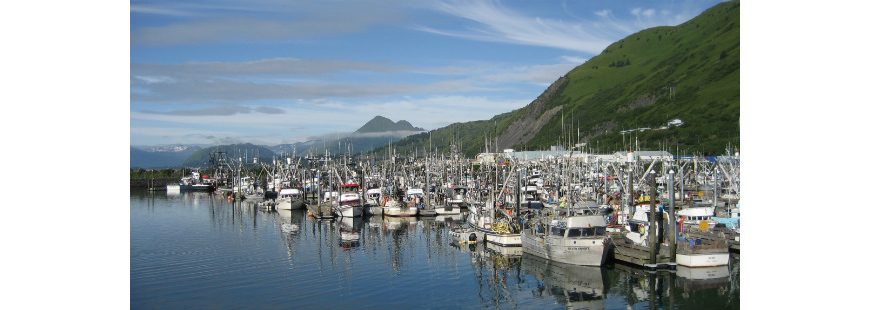The Magnuson-Stevens Act established a successful framework for sustainable science-based fishery management that is responsive to regional stakeholders while protecting national interests. Authors of the Act had a long-term, bi-partisan commitment to productive fisheries and healthy fishing communities. Our job is to uphold and build on that legacy for future generations.
—Linda Behnken, Executive Director, Alaska Longline Fishermen’s Association
Over the past 25 years, I have witnessed U.S. fisheries change from unregulated free-for-all races to the economic ruin to science-based, sustainable recreational and commercial fisheries. None of that would have possible without the bipartisan 2007 amendments to the Magnuson-Stevens Act that introduced meaningful requirements for science-based catch limits and management accountability. Even greater harvests and economic yield are possible in virtually every region as long as the U.S. continues to protect and build on these successes.
—Peter Shelley, Senior Counsel, Conservation Law Foundation
We should celebrate the Magnuson-Stevens Act. Because of it, most fish stocks in the U.S. are no longer overfished.
—Judith S. Weis, Professor Emerita of Biology, Rutgers University
In general, anglers aren’t in favor of more regulation, but the Magnuson-Stevens Act has proven itself to be an effective law in rebuilding depleted stocks of fish and protecting fishery resources for future generations of fishermen. All-inclusive conversations with stakeholders will continue to make this an effective tool for sensible management for our nation’s saltwater species, where other nations continue to fall short.
—Bob Rees, Executive Director, Association of NW Steelheaders
The Magnuson-Stevens Act provides a critical framework for managing the nation’s fishery resources, giving us the tools we need to make sure that we have future fishing opportunity. We have the most sustainable fisheries in the world, and that’s in large part due to the science-driven, collaborative approach that the MSA affords us in managing America’s last wild food supply.
—Tim Sloane, Executive Director, Pacific Coast Federation of Fishermen’s Associations and Institute for Fisheries Resources
I worked on the first Fishery Management Plans in the late 1970s and I’ve seen how fish conservation has evolved under the MSA. Like the ripples from a stone tossed into the sea 40 years ago, the conservation ethic reflected in the law is expanding steadily outward, to where healthy oceans and the future of fishing become one and the same.
—Ken Hinman, President, Wild Oceans
I’m an angler. I’m also a pragmatist, who goes with what works. For the past 20 years, I’ve watched federally-managed fish stocks respond to MSA-based management plans, while stocks managed by the states, through the Atlantic States Marine Fisheries Commission, languished or even declined. The contrast made one thing very clear: MSA’s disciplined, science-based approach to management leads to healthy, recovered fish stocks. “Flexible” state-based management schemes do not rebuild our fisheries.
—Charles Witek, Attorney, Salt Water Angler and Blogger
The Magnuson-Stevens Act has kept the tradition of fishing alive for forty years. Working together we can ensure this heritage will endure into the future.
—Rob Vandermark, Executive Director, Marine Fish Conservation Network
The Magnuson Act has helped rebuild the red snapper in the Gulf of Mexico to some of the highest levels ever recorded. American seafood consumers now have access to fresh, sustainably-harvested Gulf red snapper 365 days a year thanks to a strong federal law that puts conservation and accountability first.
—Eric Brazer, Deputy Director, Gulf of Mexico Reef Fish Shareholders’ Alliance
I support the MSA because fishing is better under the MSA. It’s that simple.
—Patrick Paquette, Recreational Fisheries Advocate from MA
With the passage of the MSA, the U.S. has gone from the Wild West of overfishing and habitat destruction to one of the best science driven fishery management regimes globally, giving our recreational and commercial fishermen a future filled with fish. It’s hard to argue with success. We can’t allow any rollbacks of the MSA. It’s working.
—Phil Kline, Senior Ocean Campaigner, Greenpeace USA
Those of us who live and fish along Florida’s Treasure Coast can thank the 2007 re-authorization for rebuilding species such as black seabass, and for making sure that relatively healthy species haven’t been over-exploited, given the dramatic increase in recreational fishing pressure and the rising demand for seafood.
—Terry Gibson, Writer, Consultant and Charter Boat Service Owner
When I hear the phrase sustainability is a journey, it makes sense to me. Looking forward, I hope that ecosystem management — just a twinkle in our 1990’s eyes — is more integrally embraced, and that it opens our eyes wider to see that many non-fishing impacts such as ocean acidification, eutrophication, toxic point and non-point source run-off, and terrestrial habitat degradation are within the legitimate purview of the Magnuson-Stevens Act.
—Kevin Scribner, Outreach and Advocacy, Salmon-Safe and Oregon-based Slow Fish Movement





